By Gabriel Neeb
Jack Kirby has been away from this earth for almost 25 years. Yet if you looked around, especially at the San Diego Comic Con, you’d never know it. I’ve walked past dozens of Thors and Captain Americas. One of the biggest holds on the cultural id has been The Avengers and its significance.
Jack Kirby is dead. Long live Jack Kirby.
On July 23, 2023, writer Mark Evanier held the Jack Kirby Tribute panel to a room filled with fans of the man and his creations.
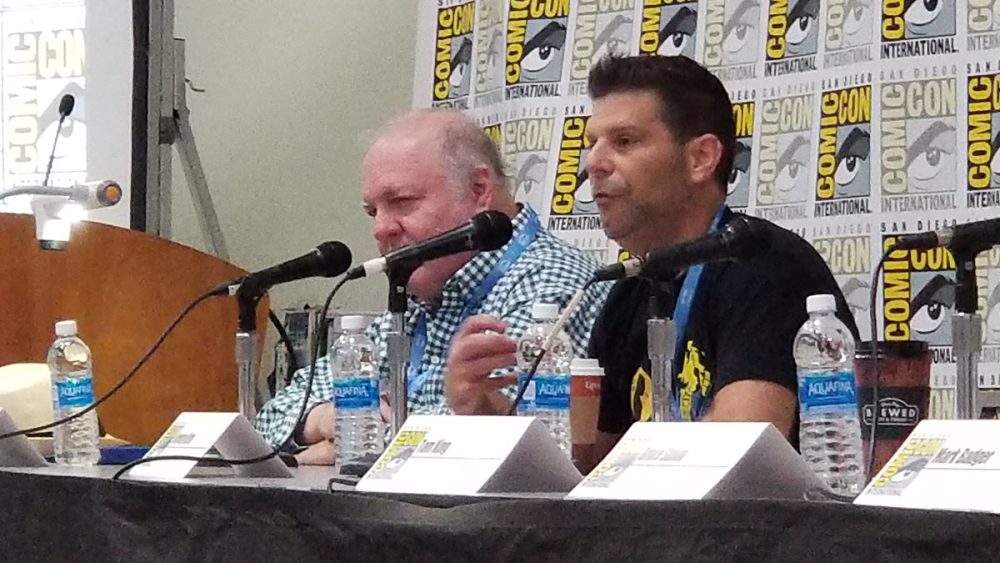
“I look forward to this more than any other panel.” I suspect Mark would know, this convention has him hosting 14 different panels (this was his tenth, he has four more before the convention finishes).
Among the panelists were Jeremy Kirby (Jack’s grandson), Bruce Simon (cartoon expert), Mark Badger (writer and Kirby scholar), Jon Cooke (writer of The Charlton Companion), and Paul Levine (Jack Kirby’s attorney). Tom King was supposed to join the panel but was unable to appear.
Evanier began the panel by reading an email from James Van Hise. The email took issue with Mark’s statement that Timely Comics (the publisher that would become Marvel) screwed Jack and Joe Simon out of royalties to Captain America. Van Hise’s issue was that Kirby never stated this in any interview. Evanier – a man who knew Kirby for many years – responded that, “He never said it in interviews.” Evanier used this as a way to argue against a trend where some are speculating that ‘…we can’t know what went on unless we were there…’ especially with regards to the relationship between Stan Lee and Jack Kirby on Marvel Comics issues. “Yeah we can,” Evanier said. “It’s called history.”
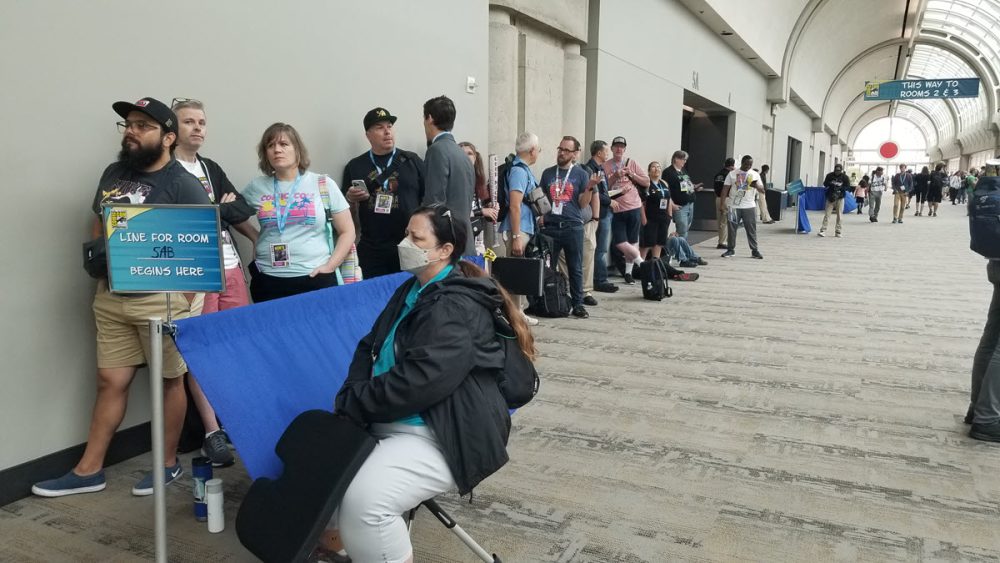
Evanier is the only person who worked for Jack Kirby and Stan Lee. He said they were different when they didn’t have a microphone in front of them. Jack had a strong anger towards Marvel, he said, as their policies interfered with his income and ability to provide for his family. The last straw that led to the break with Marvel in 1969 was when a Marvel lawyer told Jack, “…we could get anybody to do what you did. Just do what Stan Lee tells you.”
A member of that family, Jeremy, then spoke on his feelings about the tribute panels: they keep Jack’s legacy alive. “My grandfather was the driving force for so many ideas,” he said
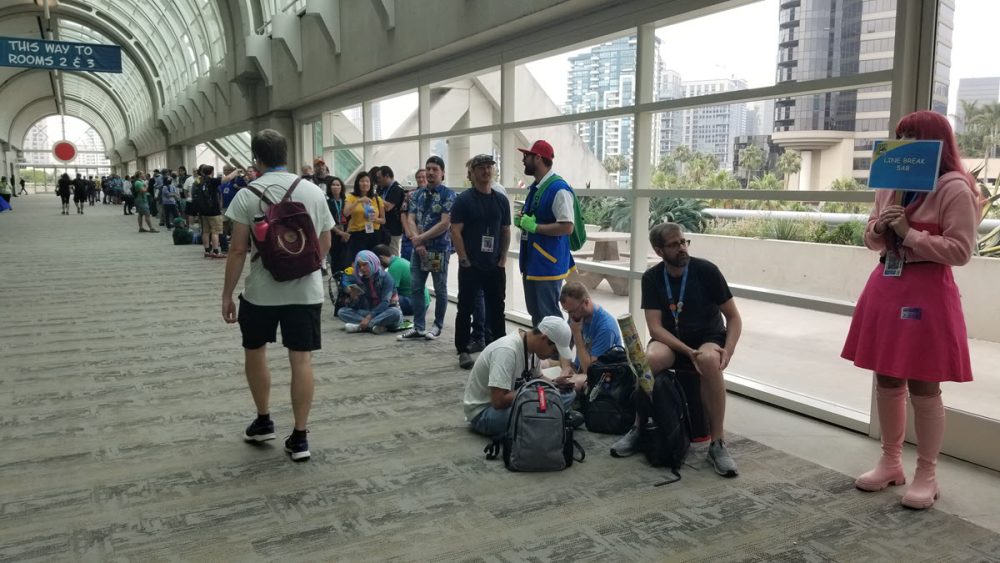
Evanier recalled conversations he had with Stan Lee, who he admitted often spoke highly of Jack Kirby. If you took the most generous thing Stan said about Jack, they weren’t that far apart with regards to the sheer creativity of Kirby, Evanier said.
This conflict deserved a special mention by Simon, who said that while he appreciates the considerable effort made by the researchers into the early Marvel era of comics, he doesn’t appreciate the rancor that emerges when researchers start discussing the period at length.
The discussion was redirected back to Jeremy, as Evanier asked what is it is like being related to Jack Kirby. To start, Jeremy said he’s always being asked if he can draw. He can’t, and though he admitted to some capability with stick figures, he does think the artistic ability skipped the grandchildren and landed with the great grandchildren. Dealing with the rest of the world is a little tricky. Most people know Jack Kirby through the movies, and Jeremy is constantly explaining how comics characters get “created.”
A particular example is the film Mallrats, which featured Stan Lee, playing himself, where he has a monologue about how Lee created certain famous Marvel characters. In short, when friends mention this, “it gets weird” especially when Jeremy has to remind people that Stan Lee was playing a character.
For Simon, Jack Kirby represents the best of the 20th Century: he was born in a lower east side tenement in New York City, fought in World War II, and went on to be one of the greatest artists of the century (comparable to Picasso and Matisse, except Kirby took their styles and put them in comic pages). Simon added that Kirby even got a few things about the future right in the idea of the Mother Box, and he seems to have nailed the idea that the San Diego Con would be as big as it is.
Other anecdotes about Jack came from his Attorney, Paul Levine, who remembered Jack as a dream client that actually listened to the advice dispensed. Jon Cooke, who wrote a book on 1980s publisher Pacific Comics, said that it was Jack’s comic Captain Victory that got Pacific taken seriously- so much that Marvel and DC worked very hard to keep creators away from it.
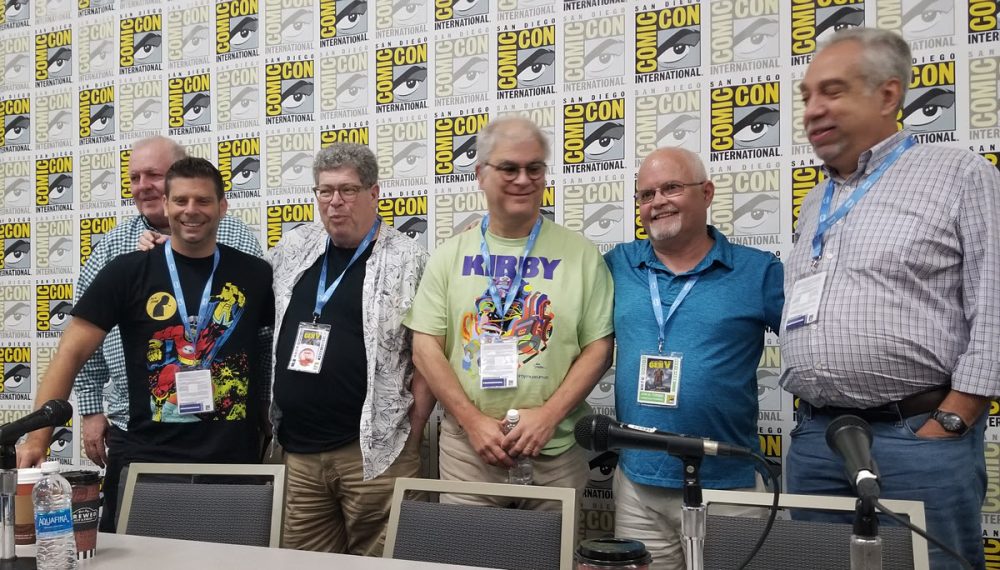
The question and answer period soon began with such inquiries for Jeremy to “humanize” Jack. Jeremy responded that Jack often began his day with Jeremy jumping on him to wake him up (at the insistence of Roz Kirby). Another question was about Jack’s relationship with contemporary Steve Ditko. Jack respected Steve, the panelists agreed, especially since, when Jack went to DC to do the Fourth World comics, Steve sent Jack a 12-page letter which boiled down to, “You’ll be sorry!,” and Steve was right.
The best part of this section was when some people asked about World War II stories Jack would tell.
At one point during the war, Jack was diagnosed with “frozen feet” (now called immersion foot or trench foot) which required hospitalization for nearly a year (and almost resulted in amputation). One day, he found himself next to a man from the South- with all the worst aspects you could find from such a man. For the next few months, Jack had to deal with the racial threats and bigotry on a daily basis. Attempts to move were unsuccessful. The day Jack was able to leave, he walked over to this guy and told him, “YOUR MOTHER WAS A BLACK WHORE!” The guy was enraged and pulled out his IV to try and respond but… he was still unable to walk. Jack just walked out.
The other World War II story Jack told was a tribute to Jack’s artistic ability. One day, Jack was called before a senior officer. Upon reporting, the officer asked about Jack’s artistic ability to which Jack replied that he had some. He was then presented with a drawing on very worn onion paper of Snow White having sex with the Seven Dwarfs. The officer asked if Jack could redraw the picture. Jack, displaying the spirit of the American soldier that beat the Nazis, said he could- and he did. Otherwise who knows what could have happened.
A few other questions followed, including one about which stories the panel would have wanted to see from Jack – the end to the Fourth World Saga and the real end of OMAC – but as the panel ended the large audience was still reeling from the war stories Jack told.
Miss any of our earlier SDCC ’23 coverage? Find it all here!


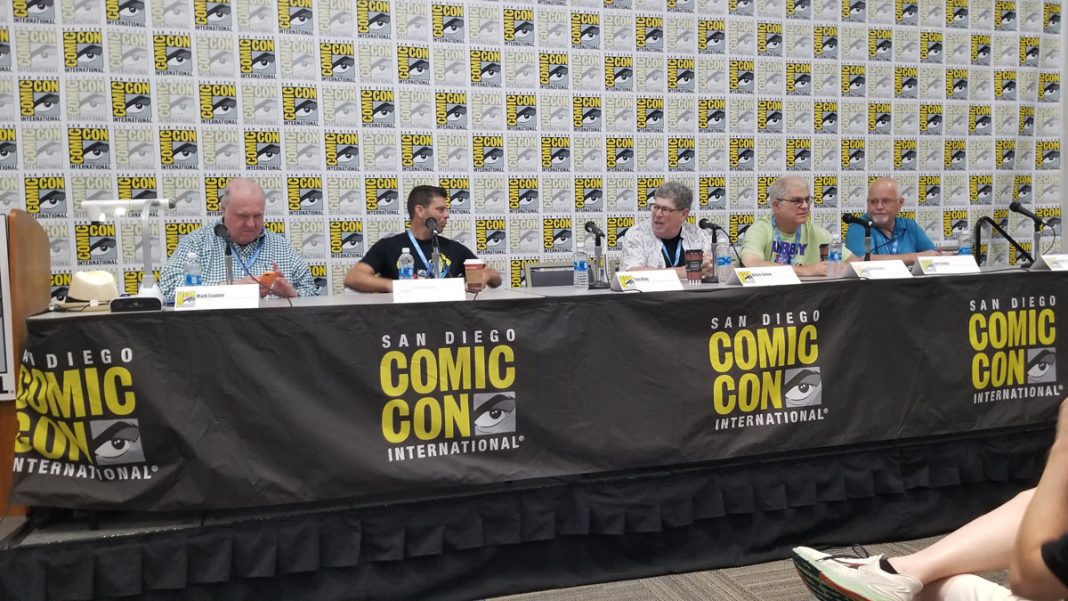
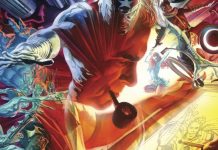
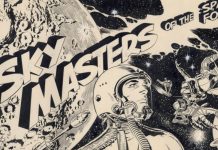
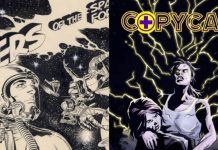


He is sorely missed
Comments are closed.